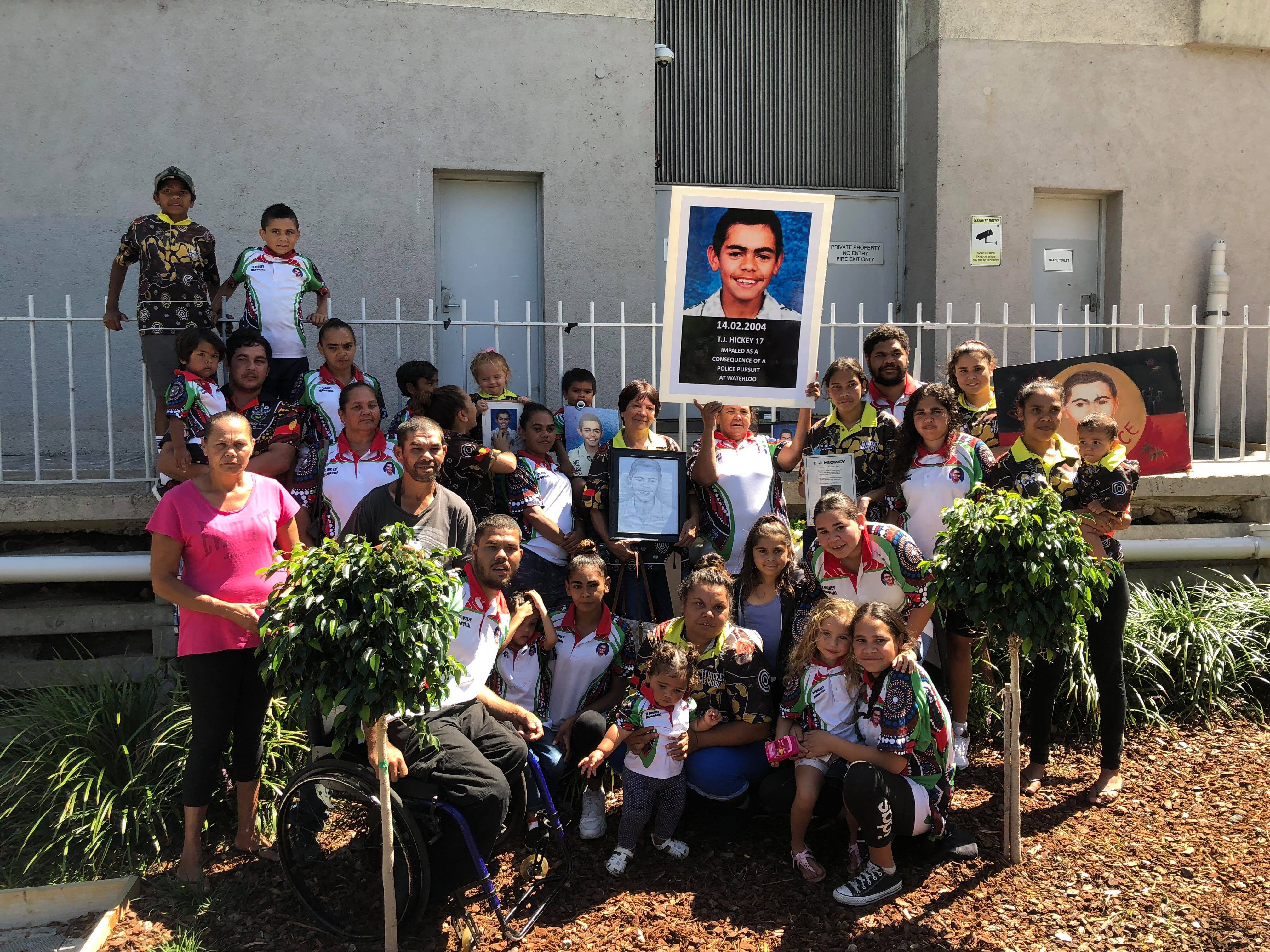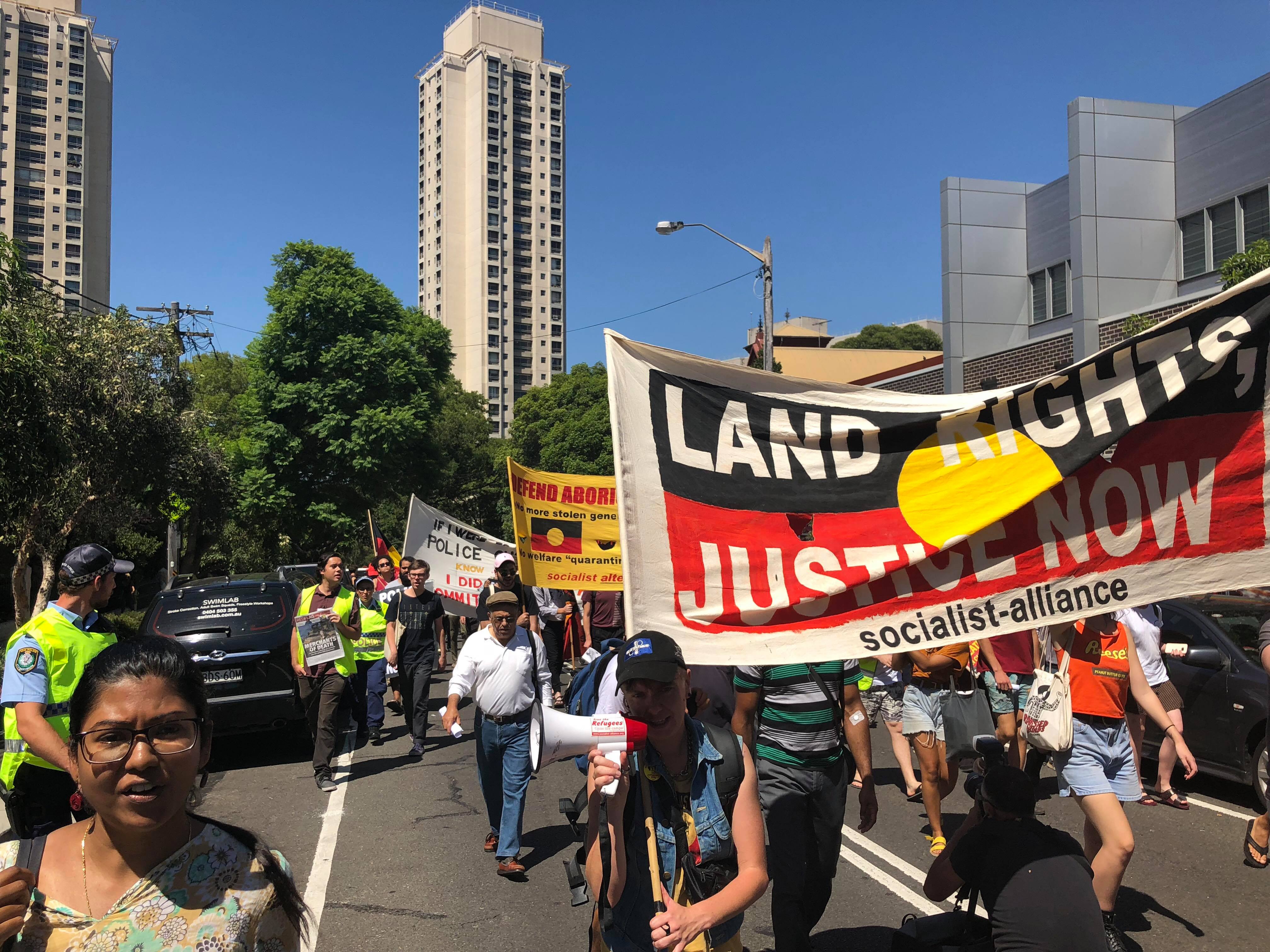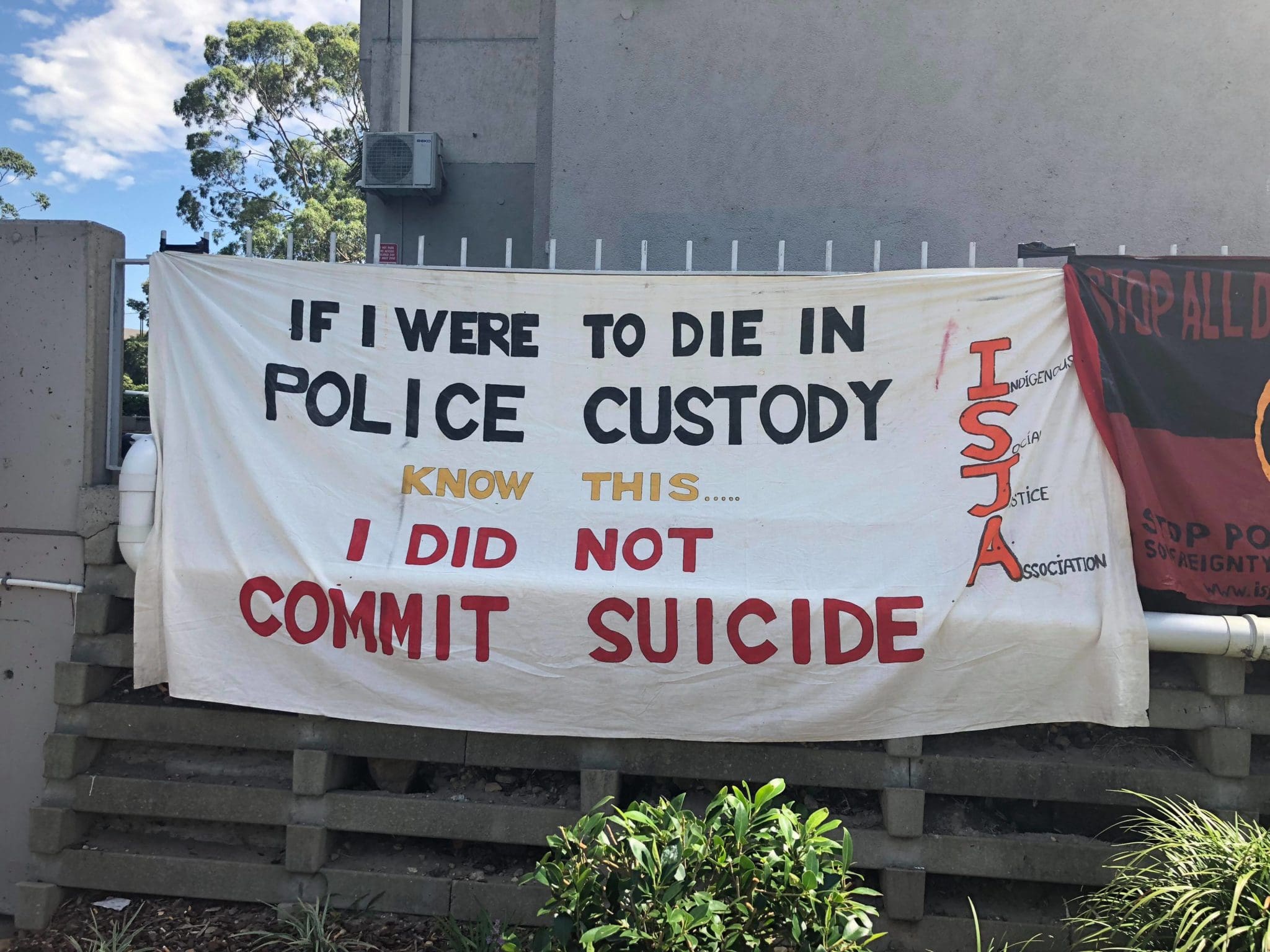“Let’s hope this is the last year that we have to fight for justice,” Uncle Ken Canning told the crowd, who, for 14 years now, have gathered to mourn the premature death of TJ Hickey by protesting racism in the criminal justice system. That tradition continued last Wednesday, as people gathered on Waterloo Green for a march that would take them through Redfern and onto NSW parliament.
In the leadup to Wednesday the Hickey family and their supporters demanded the construction of a memorial for TJ at the site of his death. Their demands specified that the family get to determine the memorial’s design and location, and that the government conduct a parliamentary inquiry into police wrongdoing on that day. In what he descirbed as “a victory for the campaign, but a big victory for Gail Hickey”, Raul Bassi, one of the rally’s organisers told Honi that the former demand was recently met. “To our surprise, without any announcements, from Saturday to Tuesday [last week], the TJ Memorial was built.”
A parliamentary inquiry has not been forthcoming, however. This ongoing inaction animated the protestors, who called for a broader end to Indigenous deaths at the hands of the police at a time when that hurt remains fresh. Last week, Patrick Fisher, an Aboriginal man, died after falling 13 stories from a balcony while police were attempting to apprehend him.

Uncle Ken Canning, of Fight In Resistance Equally (FIRE), opened the rally with an Acknowledgement of Country, paying tribute to the Gadigal People of the Eora Nation. He pointed to the murder of TJ as proof that Indigenous people are subject to ongoing and calculated inequity. (Uncle Ken later told Honi,“My own opinion is that the LNP and ALP have entered into a coalition of killing in regards to First Nations Peoples”).
Gail Hickey, TJ’s mother, began by imploring others to join the movement to end Aboriginal deaths in custody. She finished her speech with an emphatic declaration: “I know for a fact, Redfern coppers did murder my son.”
David Shoebridge, New South Wales Greens MLC, spoke next, calling the coronial inquest “nothing more than a charade.” David went on to highlight exactly how the police violated protocol on that day.
“A key police witness, the one that was driving the car that followed TJ, refused to give evidence to that inquiry. The other police witness in that car was found to be a witness who was not giving candid evidence in the inquiry. A whole series of non-police witnesses basically weren’t believed about what happened.”
Uncle Ken reminded the crowd that Constable Hollingsworth, a police officer involved with the chase, refused to give evidence on the grounds that it ‘might incriminate himself.’
“How many Rodger Rodgersons are there in the police force?,” Boe Hickey, TJ’s aunty, added from the crowd. “TJ was cold blooded murdered because he wouldn’t put drugs on the block. I am sick of it. We want justice. This is our country, Aboriginal country!” she said, to thunderous applause. (Later, Uncle Ken suggested that “the only reason they went after him that day was because he wouldn’t become a ‘pusher’ for them.”)
Uncle Ken handed the floor to Letona Dungay, who detailed the harrowing experiences she has had since her son, David Dungay, died in prison in January 2015.
The family believe that David was strangled to death by six to eight prison officers over a packet of biscuits. They maintain that David, who was a diabetic, only had those Tim Tams with him to help manage his blood sugar level. After refusing to hand the biscuits over, Corrective Services performed a ‘cell extraction.’
Uncle Ken would later tell Honi that “Within minutes [David] was dragged in a stranglehold to a cell with no CCTV and was dead. The last words his mother heard her son screaming on the audio was “I can’t breathe”. David screamed this 13 times.”
Amid many more speeches, Cheryl Kaulfuss, from the Indigenous Social Justice Association (ISJA) Melbourne, had the final word. She said the inquiry into TJ’s death was “farcical” because the police officers involved sat in one room while filling out their statements, which would have invited collaboration. She listed the various other violations of police protocol, including: turning away a police rescue vehicle that may have saved TJ’s life, prematurely steam cleaning the scene of the crime and the police vehicles involved, and failing to complete the forensic investigation.
In his concluding remarks, Uncle Ken told Honi, “TJ Hickey’s family has not had a single moment in 14 years where they can say justice has been served. Each and every year Gail is more and more emotional at the loss of her son and the refusal of our governments to lift a finger.” On the possibility of a parliamentary inquiry – something the family has and always will fight for – Uncle Ken conceded that “even Shoebridge admits to get a parliamentary inquiry under the present government is almost impossible.”
In order to bring an end to what Uncle Ken calls a “long and painful list of suspicious killings” the rest of us need to do more. While the fight for justice is likely to stretch past this year, hopefully the large numbers seen at recent Invasion Day rallies will flow into a more sustained campaign that brings about meaningful restitution.
Maya Eswaran assisted Honi with this piece.






